|
After clicking 'Play', please wait a few moments for the podcast to load. You can also listen on Spotify, Apple, Google, Podomatic, Player FM and Deezer. Composer Scott Stevens describes his practice of listening inwardly while composing music -- listening to his own hunches, to the wisdom of other people and for the still, small voice of God. He explains how this practice shaped the music he recently composed for the film Sometimes I Shake, about the life and death of jazz musician and teacher Dan Nelson. The conversation includes some of Scott's music. For more info about the film, visit thedanfilm.com. You can also watch short videos Scott has made describing his process the film score here. Scott Stevens is a composer whose versatility stems from eclectic influences. His music is featured in multiple independent film scores as well as ads for Toyota, Saatchi & Saatchi and Red Bull, among others. Scott holds a Bachelor’s degree in Music Composition from Point Loma Nazarene University and a Master’s degree in Global Music Composition from San Diego State University.
Scott's other work on Foreshadow: Dawn Will Prevail (Music, December 2020) Perspective (Music, January 2021) Josh Seligman is the founding editor of Foreshadow.
0 Comments
By Bruised Reeds (Evan Amo) After clicking 'Play', please wait a few moments for the music to load. 'World Reborn' In a world reborn, weakness is strength In a distant land, power's held by the slave The truth is that the rich will one day be poor When a world draws near upon salvation's shore Our wildest dreams are far too sterile We can't conceive what could become Imagination should unsettle As we reach for a world reborn Bracing for control is the course of the lost Those who seek greatness will surely fall from the top The strong who hold the line are really left in the dark For love shines down on the meek, contrite heart What if we dreamt for real? How would our priorities change? One day the dawn will heal But can the light break forth today? Our wildest dreams are far too sterile We can't conceive what could become Imagination should unsettle As we reach for a world reborn Yeah, we'll reach for a world reborn 'World Reborn' is a song about conflict of imagination. In scripture, we are given an image about the nature of our existence: we are created by God for the purpose of love and righteousness, crystallized in the self-giving love of Jesus for the life of the world, and it is in this purpose that the world will be reborn as God makes all things new. This purpose of shalom is realized in relationships and structures or equity, justice, and compassion, including the elevation of the marginalized and vulnerable. This holy imagination often contradicts dominant imaginations that lionize greed, selfishness, and domination, and ostracize poor and marginalized people. The imagination of God’s Kingdom inspires us to pursue another way for our world, towards a righteousness that unsettles. - EA Bruised Reeds is the songwriting project of Evan Amo, a Presbyterian minister based in Denver, Colorado. Bruised Reeds' debut EP is 'Imaginations' (2021).
'Simple Gifts' by Joseph Brackett Jr ‘Tis the gift to be simple, ’tis the gift to be free ’tis the gift to come down where you ought to be And when we find ourselves in the place just right ‘Twill be in the valley of love and delight. When true simplicity is gained To bow and to bend we shan’t be ashamed To turn, turn will be our delight ‘Till by turning, turning we come round right. Edward Hicks (1780–1849) was a Quaker preacher and an American painter. The Peaceable Kingdom depicts a vision of paradise from the book of Isaiah, chapter 11.
Joseph Brackett Jr (1797–1882) was a Shaker elder and an American songwriter. After clicking 'Play', please wait a few moments for the podcast to load. This past January, music teacher Jon Seligman published an article about using music to help his school grieve the loss of a beloved teacher. Josh spoke with Jon about this experience and asked if he found Jesus' words to be true: 'Blessed are those who mourn, for they will be comforted.' The conversation includes a recording of the school choir singing the song 'Saturn' by Sleeping at Last. Jon Seligman is an elementary school music teacher in Chula Vista, California. He holds a Bachelors in Music Composition and an MA in Teaching from Point Loma Nazarene University, California.
Josh Seligman is editor of Foreshadow. After clicking 'Play', please wait a few moments for the podcast to load. You can also listen on SoundCloud, Spotify and Apple Podcasts. Forecast's first episode features a conversation with Will Shine, who is joining the Foreshadow editorial team as a co-host of Forecast. The episode begins discussing his music and worship leading, and then goes deeper to explore what it means to belong to a place and to other people. It also includes clips of some of Will's music. Forecast is the Foreshadow podcast, where we have conversations seeking glimpses of Heaven on earth through people's lives and work. Will Shine is a musician, thinker and friend. He holds a Bachelors in Music from Point Loma Nazarene University and an MA in Theology and the Arts from Fuller Theological Seminary, California. His website? www.itswillshine.com.
Josh Seligman is Editor of Foreshadow. By Will Shine After clicking 'Play', please wait a few moments for the music to load. 'The Future Ain't What It Used to Be' I slipped and fell into the ocean And a big fish swallowed me But then he spit me up and swam away in great disgust And said, 'The taste ain't what it used to be.' I went and saw a fortune teller Asked her if I'd ever grow old Well, she looked back at me and explained, despite the fee, 'Those weren't the kind of fortunes that you're told, no.' Can't you see, can't you see? This ain't the way it was meant to be Read the book, ask your folks, consult the prophets of old The sky is falling down, the whole world is upside-down Yeah, the future ain't what it used to be Oh, the future ain't what it used to be They say the times they are a'changin' Yet they seem to stay the same Don't see the point in rearrangin' If everything is going up in flames Can't you see, can't you see? This ain't the way it was meant to be Read the book, ask your folks, consult the prophets of old The end is drawing near, we have everything to fear Yeah, the future ain't what it used to be Oh, the future ain't what it used to be Yes, the future ain't what it used to be Below is an excerpt from a conversation between Will Shine (WS) and Josh Seligman (JS), editor of Foreshadow, about Will's music and work. JS: What inspired you to write the song? WS: I wrote it while I was a student at Fuller [Theological Seminary]. In fact, I wrote it as the summation project for a theology and culture class. I loved talking to you about it the other day because you heard something different in it, which is great because hopefully, that's not to pat myself on the back, but that means it functions in a properly artistic capacity, that it was multireferent, it has hermeneutical potential, meaning it could be interpreted in different ways, and that's great. As I wrote it, in my mind, it’s really around a lyric. And it’s a playful musical setting. It has a very playful Lyle Lovett kind of vibe -- a folksy, country-rock kind of a shuffle. I’m really an instrumentalist first, I think in my mind at least, and then definitely a lyricist and all that stuff second. So I’m imagining textures and stuff to help carry this message, and that’s what came to mind, this whimsical tune with a lot of conventional trappings, harmonically speaking, to get into the weeds musically there for a moment. But in terms of lyric, it’s a satire piece entirely for me. It’s sung from the first-person perspective of someone whose really entrenched doctrinal stances, their belief systems, are uprooted when the future ain’t what it used to be, when all of their senses of what were supposed to happen or come to fruition, or the experiences that they thought they could bank on and what they thought was true -- it’s not what it was supposed to be. It didn’t work out that way. In part I had in mind Harold Camping, who ran billboards around the country, and we had him in San Diego when we were finishing college, about predicting the end of the world and the date, and it just wasn’t that, you know what I mean? It was so ridiculous. And the guy made tons of money off of people who fell or that and were convinced that this was what was true and so divested themselves because the naysayers, the prognosticators of doom had spoken and this was what was true. I’m thinking of the series the HBO series The Leftovers for a media relationship, a great series that kind of deals with this too. But yeah, it’s just to satire that, to spoof that, the disappointment that comes when you realise fortune tellers really aren’t actually telling you your fortune, and prophecies that you thought meant one thing really don’t mean that thing, and they don’t even want to play anymore with you, the whale spits the guy out. JS: I really like that line. It starts out with that line. Jonah comes to mind, and then it’s the joke, ‘The taste ain’t what it used to be.’ So these people that you think are prophets, they’re not the real thing. On one hand, heaven and earth -- God’s glory fills it all. And yet on the other hand, we’re still in this fallen world, and there are prophets that often don’t speak on behalf of God. There are prophets that, whether it’s intentional or not, they are false prophets. They don’t speak the truth. WS: I think nobody really has the corner on the truth. I think that’s part of the suggestion. The person in the song, their world is ending because the way they thought it was supposed to go isn’t what’s actually happening, so now the world really is ending. And I think that’s part of the thing that evades prophecy and people when they think about prophecy. People think prophecy is about in general predicting the future, and that’s not really what prophecy is. It’s really about addressing the present, I think. In the biblical prophetic tradition, it’s about really addressing what’s happening right now. Clairvoyance is about the future. Maybe it’s just semantics. I think prophecy is about really dealing with the present. And a truly prophetic voice helps bring us somewhere into the future by giving us a better sense of what is presently going on. Again, the person in the song, their false notion of what prophecy is, is foiled, and now their world, from their vantage point, is falling apart. They cannot reconcile the fact that the things that they thought should be happening, or would happen, are not. JS: This connects back with what we were saying earlier about how we become who or what we worship. Maybe these false prophets are worshiping a false future, so when that doesn’t come, they come crashing down. As the editor of Foreshadow, I see our work as prophetic in the sense that, in our worship of God, we see a vision of a union between the future and the present, a union between heaven and earth, a union between God’s future and the present that we live in. And in that union, that changes how we live and how we operate in this world today. Stay tuned for an upcoming interview exploring Will's music and work. Will Shine is a musician, thinker and friend. He holds a Bachelors in Music from Point Loma Nazarene University and an MA in Theology and the Arts from Fuller Theological Seminary, California. You can learn more about his work at www.itswillshine.com.
By Scott Stevens After clicking 'Play', please wait a few moments for the music to load. As I try to write about "Perspective" this afternoon having just watched footage of mobs assaulting the Capitol in Washington, I am aware of the melancholy and quiet strength in this piece. Listening to it provides a stark juxtaposition to the displays of violence and unrest being broadcast. To me, the music encourages reflection, tells of the sadness of the times, yet conveys courage -- even if it is a fragile one. Covid-19 still weighs heavily upon us all and yet we each dare to hope, to strive, and to live into the unknowns of our futures. We carry hope in one hand and lament in the other. Courage and sadness are not mutually exclusive. While I enjoy hero stories and bombastic soundtracks, "Perspective" is not a conventionally heroic piece. It is neither flashy nor daring. Instead, "Perspective" engenders simplicity: a theme that runs throughout my 2020 release. The true heart of this piece emerges after one minute, when all is cleared away save for a simple piano motif. Without the armor of the orchestra, a simple tune remains to decide for itself whether to give up or continue on. - SS Scott Stevens is a composer whose versatility stems from eclectic influences. His music (listen on Spotify) is featured in multiple independent film scores as well as ads for Toyota, Saatchi & Saatchi and Red Bull, among others. Scott holds a Bachelor’s degree in Music Composition from Point Loma Nazarene University and a Master’s degree in Global Music Composition from San Diego State University.
Scott's piece 'Dawn Will Prevail' was published in Foreshadow in December 2020. By Scott Stevens After clicking 'Play', please wait a few moments for the music to load. Dawn Will Prevail begins with fragility of hope in the form of a thin arrangement featuring solo piano and strings. When dawn "arrives," it is only after the night's darkest hours. As the full orchestra swells in, the chord progression sounds alternately heroic and slightly unresolved as the piece moves through different keys. Sometimes hope is tangible, firm, and within reach, but often it can be more elusive, requiring us to take hold of it firmly. Dawn Will Prevail first appeared in The Vastness EP, which was a concerted effort to listen inwardly and write what emerged over the course of three weeks in June 2020. Each track features relatively sparse instrumentation that grows more dense with dynamic emotional swells. While writing, city curfews were enforced, violence and destruction sparked, peaceful protests formed, and my mother received life-saving emergency surgery. The EP juxtaposes heaviness with resolute hope because that is what I have felt and what I feel now. Scott Stevens is a composer whose versatility stems from eclectic influences. His music is featured in multiple independent film scores as well as ads for Toyota, Saatchi & Saatchi and Red Bull, among others. Scott holds a Bachelor’s degree in Music Composition from Point Loma Nazarene University and a Master’s degree in Global Music Composition from San Diego State University.
|
Categories
All
ForecastSupport UsArchives
March 2024
|
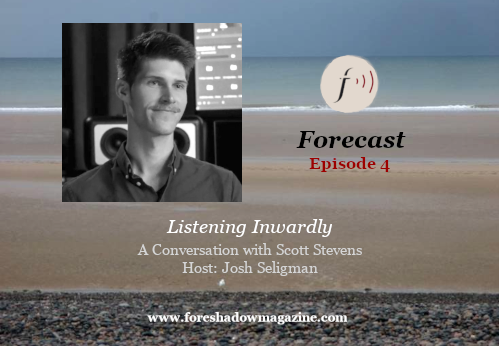

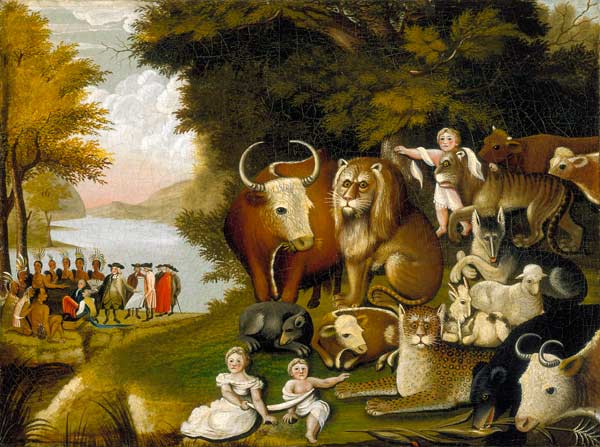
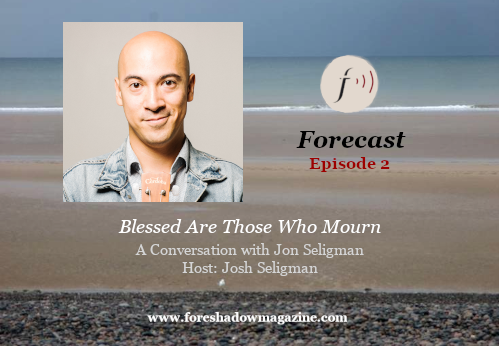
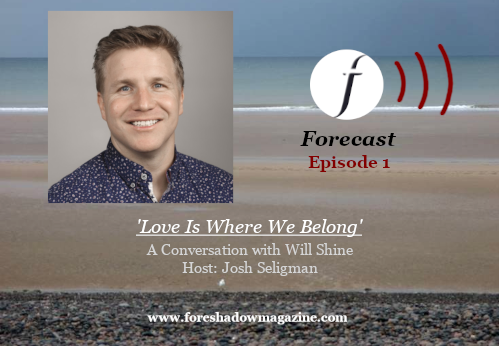
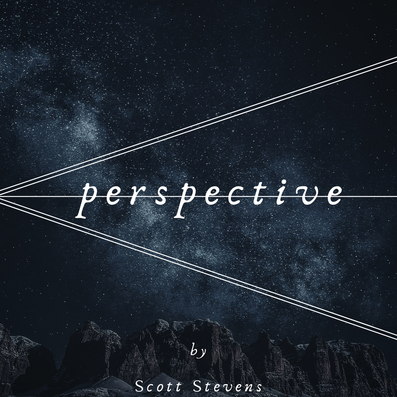
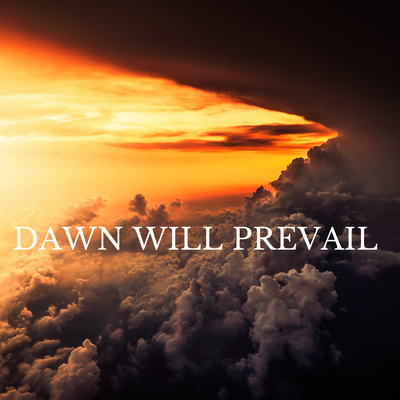
 RSS Feed
RSS Feed
